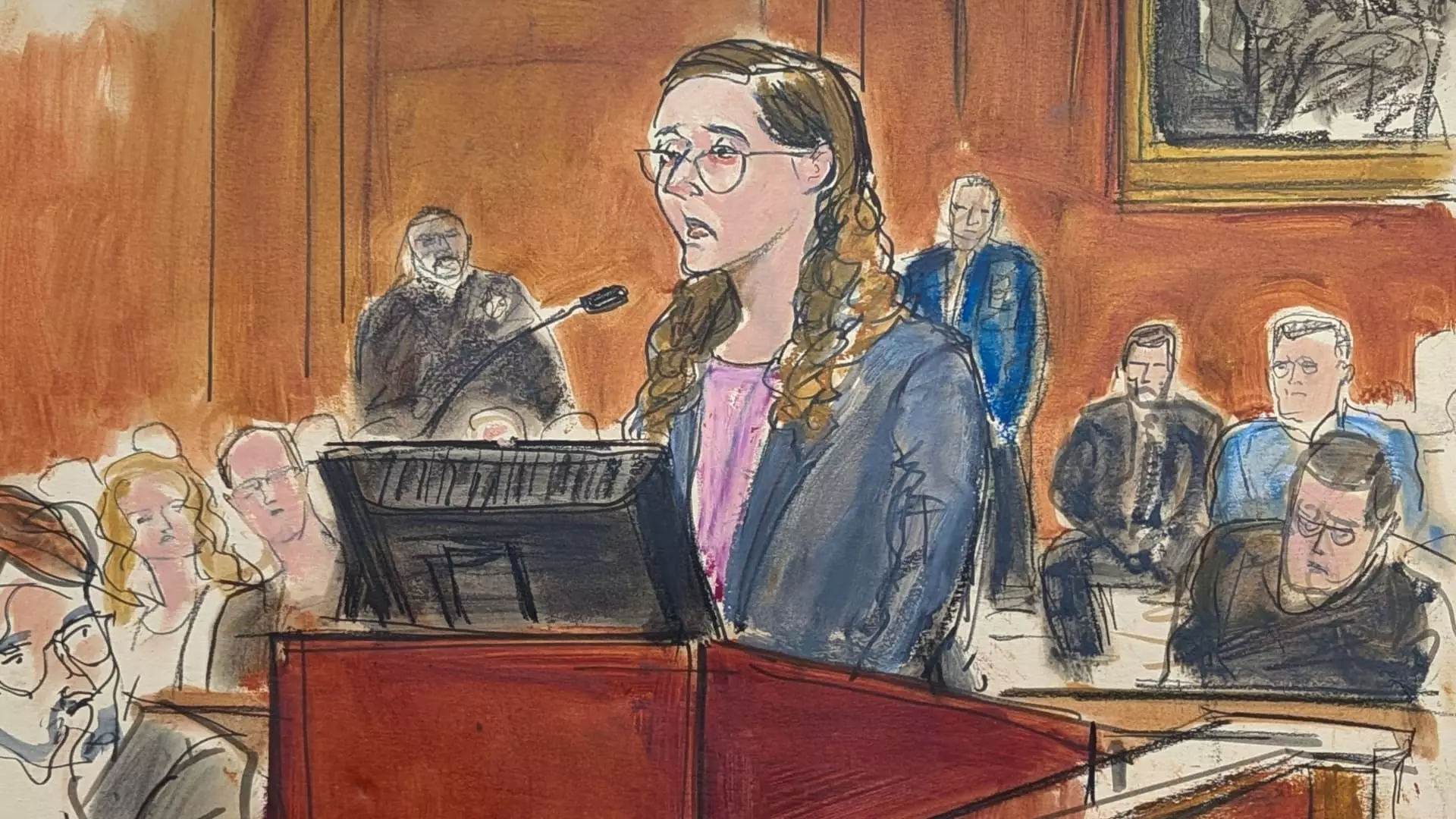The saga of FTX, once a titan in the cryptocurrency landscape, serves as a cautionary tale about the pitfalls of financial mismanagement and ethical ambiguity. Founded by Sam Bankman-Fried, FTX soared to a valuation of $32 billion before crashing down amid allegations of fraud and malfeasance. Central to this narrative is Caroline Ellison, the former CEO of Alameda Research and now a key witness in the FTX securities fraud case. The legal proceedings surrounding FTX not only illustrate the mechanics of modern financial crime but also highlight the ethical dilemmas faced by those who find themselves embedded in complex corporate structures.
Caroline Ellison’s recent sentencing to two years in federal prison in New York has drawn considerable attention. Initially, the federal Probation Department recommended she serve three years of supervised release, which would have spared her the experience of incarceration altogether. This proposal was met with skepticism from Judge Lewis Kaplan, who felt that a mere slap on the wrist would fail to deter similar future offenses. The seriousness of the FTX case was underscored by the staggering $11 billion that was forfeited due to her actions.
The judge’s perspective underscores a crucial aspect of criminal law: the necessity of punishment as a deterrent. By deeming FTX’s operations as potentially the largest financial fraud in U.S. history, Judge Kaplan sent a message that fraudulent activities in the financial realm carry severe repercussions. Ellison’s cooperation with authorities, while commendable and instrumental in the prosecution of Bankman-Fried, was ultimately weighed against the enormity of the crimes committed.
Ellison’s decision to cooperate with prosecutors stands in stark contrast to Bankman-Fried’s approach. While she sought to provide critical information that aided the prosecution—such as revealing fabricated documents—he opted to contest the case vigorously. This dichotomy raises an essential question: should the justice system offer leniency to those who turn state’s evidence in exchange for cooperation? In Ellison’s case, her pre-sentencing hearing was marked by expressions of remorse and shame for her actions. At the same time, her legal team advocated for her and sought to portray her as someone who had learned from her mistakes.
The complexities of legal outcomes for individuals who cooperate with authorities in white-collar crimes can appear inconsistent. While Ellison received a significantly reduced sentence due to her collaboration, Bankman-Fried now faces a lengthy prison term for his outright denial of wrongdoing. Such outcomes reinforce the notion that cooperation might serve as a strategic legal tool, but also highlight the ethical conflicts that can arise in such decisions.
Ellison’s involvement with FTX and Alameda Research was deeply entwined with the mismanagement of customer funds, which were reportedly used to prop up Alameda’s trading operations. The implications of this are profound, as it raises questions about accountability at all levels within organizations. Many have found themselves ensnared in similar ethically dubious environments where the line between compliance and complicity is blurred. By failing to extricate herself from Bankman-Fried’s influence, Ellison contributed to a system that ultimately led to the loss of billions and the devastation of countless investors.
Interestingly, her story also illustrates the emotional toll of such decisions. As Ellison recounted her regrets in court, she expressed sorrow not only for her actions but also for the trust that was betrayed. This brings to light the psychological ramifications that accompany financial crimes—not just for the victims but for the perpetrators as well.
Ellison’s sentencing marks merely a chapter in the broader FTX saga. With other former executives such as Gary Wang and Nishad Singh also awaiting sentencing, the ramifications of this financial scandal will continue to emerge. The perceived severity of these sentences will likely shape public opinion about corporate accountability, fraud, and the role of collaboration in securing justice.
As the nation grapples with the fallout from FTX, the court’s handling of these cases serves as an important reminder that accountability in finance is not just about serving time. It’s also about restoring trust in financial systems and deterring future misconduct. The FTX case may have exposed vulnerabilities within the crypto market, but it also poses larger questions about the ethical frameworks that govern corporate behavior. Ultimately, how these enforcement actions are perceived will linger long after the last gavel has fallen.

